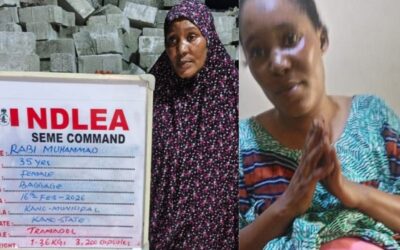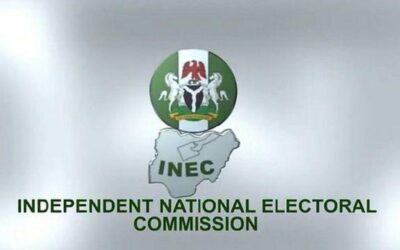Social Media Regulation: Freedom with Boundaries
There have been constant calls for social media regulation from government, traditional rulers and concerned citizens in Nigeria. The call for regulation has been misconstrued by many, especially young people to mean suppression, repression, and an attempt to limit or restrict the right to freedom of expression. Some even go as far as suggesting that it is an affront on the tenets of human rights. But while the place of freedom is important in any democratic country, it is equally important to see that it portends unfavourable consequences for a nation when there is a failure to curtail its excesses.
Read Also: Social Media as the People’s Complaint Commission
Contrary to opinions being disseminated in open and closed quarters, the call for social media regulation is a call for freedom with boundaries. It is a call to checkmate the vicious shapes that have taken over the media space. Information is power. Power that is capable of changing destinies for the better or worse. The social media controls that space with little rules or restrictions, and largely no stringent consequences that bear upon the person a high level of caution. The flexibility and laxity it allows give room for questionable excesses. On social media, you can say what you want to say and get away with it. You can report, libel and parade anyone publicly, yet still enjoy some level of anonymity, and safety. All of these provide an illusion of freedom, and encourage truancy and viral information terrorism. This accounts for the negative way/s in which the social media is used. Even when we want to bury the truth and turn a blind eye to its excesses, it cannot be denied that social media has been used to mislead, bully, and vilify people, as well as promote poor and false representation of situations and contexts to the point they get blown out of proportion.
The gross excesses can also be seen in the cases of cyberbullying, a malaise that has become mainstay in the media space. From body shaming ordinary citizens to throwing vituperatives at random people, the social media has now become a lawless landscape where expletives are traded, decency is displaced, and basic laws guiding information and personal dignity is abused. This has caused psychological trauma for a lot of people, and in extreme cases death where people take their own lives. Even the law recognizes that freedom stops when it infringes on the right of another. This is why statesmen and stakeholders have called for sanctions on the excesses of social media through regulation. For Lai Mohammed, the Minister of Information and Culture, he argued that social media must be regulated to prevent spread of hate speech and fake news. The minister is well aware that secessionist groups like Nnamdi Kanu, and terrorists groups like Boko Haram, also use social media with untrammelled ease to instil fear, misinform Nigerians and to heat up the polity in the country. The minister describes fake news as the next epidemic that will hit Nigeria and the rest of the world. In view of this, we witness a flood of misinformation, disinformation and silences in the recent US Presidential elections. These spate of curated propaganda have undermined the chances of Donald Trump and have made voters favour his opponent, President-Elect Joe Biden.
In any political system, hate speech is totally unacceptable. A majority of developed democracies have laws that restricts hate speech. These democracies include top countries like the UK, Australia, Denmark, France, New Zealand, Sweden, and a host of others. Facebook, Google, Microsoft, and Twitter have been made to obey a European Union code of conduct obligating them to review the majority of hate speeches posted on their services within 24 hours. Unfortunately, there are no such official restrictions in Nigeria, therefore one is inundated with false representations, gory scenes, lackadaisical commentary and half-truths that provide various shades of hate speech and fake information.
Pastor Tunde Bakare, General Overseer of the Citadel Global Community Church, seems to understand the dilemma that government and law-abiding Nigerians face. The pastor, who is known for his constant critique of government and political issues in the country, opined that, ‘There is no freedom anywhere in the world.’ Throwing more light on his position regarding the regulation of social media, Pst. Bakare said:
‘I am not saying curtail them or we can’t use social media in Nigeria, but there is no nation where there are no balances. Look at the picture of a drama that was staged somewhere else that was used (to) say soldiers have killed protesters.
‘Those things can create troubles. But we cannot be draconian. We are not going back to Decree 4. We must do things decently and orderly, listen to the people and formulate laws that will be beneficial to all of us.’
Therefore, the excesses of social media and by extension freedom of expression should be checked in any civil society. This goes beyond public offices. It entails all strata of society, and this does not and should not exclude social media. The call for regulation should not be misinterpreted as a way to gag the freedom of Nigerians. It should rather be appreciated for its attempt to live up to standard safeguards and international practices that limit the uncivilized manner and ways most people approach issues online. It is the duty of the government to provide an enabling environment that will improve the well-being of its citizens. It cannot evade its responsibilities, while the fabric of the nation is being torn by faceless elements. The government cannot allow for the kind of lawlessness that promotes destruction of people’s esteem and social harmony in the country. This explains why it is pushing for a regulation of social media, which will further limit cyber bullying that has a great potential to encourage the high spate of suicides.
Nelson Okoh


